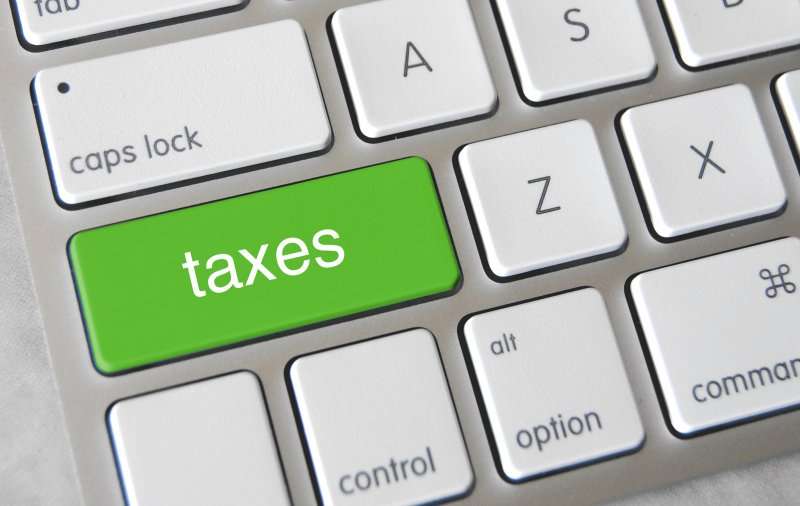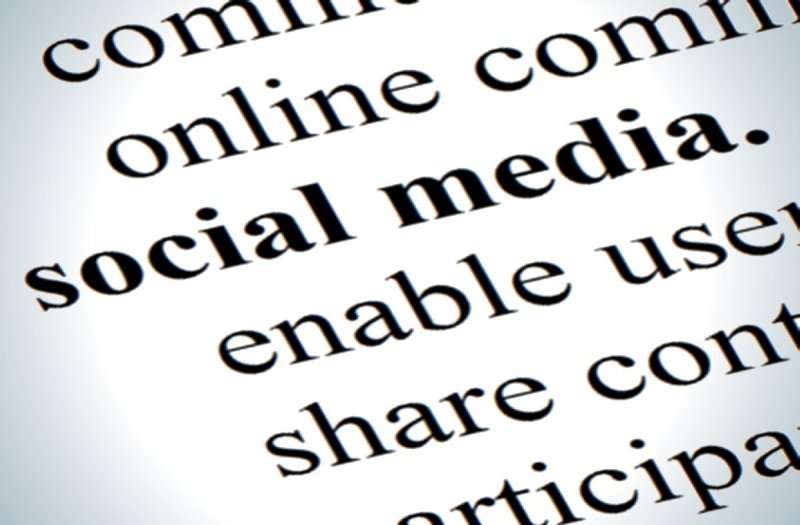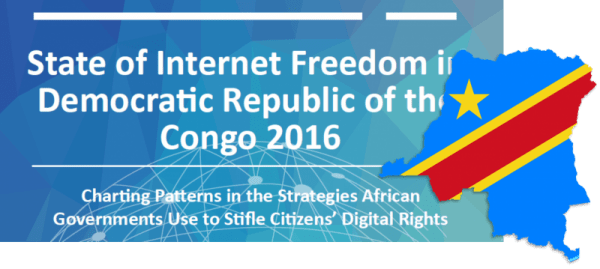By Juliet Nanfuka |
Uganda’s president Yoweri Museveni has directed the finance ministry to introduce taxes on the use of social media platforms. According to him, the tax would curb gossip on networks such as WhatsApp, Skype, Viber and Twitter and potentially raise up to Uganda Shillings (UGX) 400 billion (USD 108 million) annually for the national treasury. The ministry has already proposed amendments to the Uganda Excise Duty Act, 2014 to introduce taxation of “over-the-top” (OTT) services, and raise taxes on other telecommunications services.
Section 4 of the Excise Duty (Amendment) Bill 2018, a copy of which was obtained by CIPESA, states: “A telecommunication service operator providing data used for accessing over the top services is liable to account and pay excise duty on the access to over the top services.” The amendment defines such services as the “transmission or receipt of voice or message over the internet protocol network and includes access to virtual network; but does not include educational or research sites which shall be gazetted by the Minister.”
According to the proposals, which could take effect on July 1, 2018, OTT services that commonly include messaging and voice calls via Whatsapp, Facebook, Skype and Viber will attract a tax duty of UGX 200 (USD 0.05) per user per day of access. In his letter, Museveni said the government needed resources “to cope with the consequences” of social media users’ “opinions, prejudices [and] insults”. He proposed a levy of UGX 100 (USD 0.025) per day per OTT user. Prime Minister Ruhakana Rugunda supported the suggestion as did the ICT minister, who stated that the taxes were meant to increase local content production and app innovation in Uganda.
If implemented, the proposed tax will be the latest in a series of government actions that threaten citizens’ access to the internet. Last month, the communications regulator issued a directive calling for registration of online content providers and also released tough restrictions on registration of SIM cards. At the USD 0.05 per day suggested by the finance ministry, a Ugandan user would need to fork out USD 1.5 per in monthly fees to access the OTT services. That would be hugely prohibitive since the average revenue per user (ARPU) of telecom services in Uganda stands at a lowly USD 2.5 per month.
According to the Uganda Communications Commission (UCC), in the 2016-2017 financial year, Uganda’s telecommunications sector contributed UGX 523 billion (USD 141.2 million) to national tax revenue, an increase of 14.3% from the previous year’s UGX 458 billion (USD 123.6 million).
As of September 2017, Uganda had an internet penetration rate of 48% while the mobile subscription stood at 65 lines per 100 persons. Research shows that at least one in nine internet users in the country is signed up for a social networking site, with Facebook and WhatsApp the most popular.
Indeed, social media and by extension OTT services, are key avenues for public discourse, service delivery and political engagement. As per the recently released results of the national IT survey 2017/18, 92% of MDAs have a social media presence with most using Facebook, Twitter and WhatsApp as their primary platforms for information dissemination and engagement with citizens. Meanwhile, telecommunications companies have tapped into the popularity of OTTs by offering competitive social media data packages, resulting in what was popularly referred to as “data price wars.”
The amendment bill also proposes a 12% tax for airtime on cellular, landline and public payphones. The latter two previously attracted a 5% tax. The tax on mobile money transfers has been increased from 10% to 15%, while a 1% tax has been introduced to the value of mobile money transactions of receiving and withdrawals.
The proposed taxes do little to support internet affordability in Uganda, which already scores poorly on the Affordability Drivers Index (ADI) that annually assesses communications infrastructure, access and affordability indicators. Currently, 1GB of mobile prepaid data in Uganda costs more than 15% of the average Ugandan’s monthly income. This is much higher than the recommended no more than 2% in order to enable all income groups to afford a basic broadband connection.
The proposed taxes have also raised considerable debate among members of civil society and the business sector, who are concerned that consumers will inevitably be economically affected, while the legal fraternity has called the move unconstitutional. In a country where two social media shutdowns were ordered in a space of three months during 2016, and where some social media users have been prosecuted or arrested over opinions expressed on Facebook and Twitter critical of public officials, these developments are particularly worrying. Already, the perceived high level of surveillance has forced many Ugandans including the media, into self-censorship, turning them away from discussing “sensitive” matters of community or national importance.
The increasing popularity of social media enabled OTT services, brings new regulatory challenges for governments, as many of these services have not required a licence or been required to pay any licensing fee according to the Electronic Frontier Foundation (EFF). However, the regulation of OTT platforms and services may in some cases adversely affect user rights.
On the financial inclusion front, the proposed taxes are also likely to affect mobile money subscriptions and the cost of doing business. In Uganda and across Africa, mobile money has become the primary means of financial transactions, offering new opportunities for productivity and efficiency gains to governments, businesses and individuals.
Feature photo by GotCredit
Tanzania Issues Regressive Online Content Regulations
By Ashnah Kalemera |
Tanzania has issued online content regulations that oblige bloggers, owners of discussion forums, as well as radio and television streaming services to register with the communications regulator and to pay hefty licensing and annual fees.
There are three types of licences. A license for provision of online content services comes at an initial cost of TZShs 1.1 million (USD 484) comprised of an application fee of USD44 and an initial licencing fee of USD 440. In addition, there is an annual licence fee of USD440, and a similar amount has to paid for licence renewal after three years.
A licence to stream radio or television content on the internet costs TZShs 250,000 (USD110), with annual licence fees set at USD 88. This licence also has to be renewed after three years at a cost of USD 88.
The Electronic and Postal Communications (EPOCA) (Online Content) Regulations, 2018, which were issued on March 13, 2018, join a catalogue of legislation related to online content in Tanzania that threatens citizens’ constitutionally guaranteed rights to privacy and freedom of expression. The regulations are also likely to negatively impact on an already fragile intermediary liability landscape in a country fraught with increasing media repression and persecution of government critics.
When the Tanzania Communications Regulatory Authority (TCRA) initially published the draft regulations last September, they did not have the requirement to apply for online content service licences as set out in Regulation 14 of the enacted regulations. It states: “Any person who wishes to provide online content services shall fill in an application form as prescribed in the First Schedule and pay fees as set out in the Second Schedule to these Regulations.”
Applicants are required to provide their company details including physical address, shareholding, citizenship of shareholders/directors and tax registration. The communications regulator, TCRA, has the right to cancel licences over non-compliance.
The regulations that have been issued are more regressive than the draft which the regulator issued in September 2017 for public comment.
See CIPESA’s full analysis of the draft EPOCA Content Regulations, 2017 – available in English and Swahili.
Under obligations of internet cafes, the final regulations introduced two clauses that threaten user privacy. Under regulation 9, café owners are required “to ensure that all computers used for public internet access are assigned public static IP addresses”. This could inhibit the use of circumvention tools such as Virtual Private Networks (VPN) that rely on dynamic IP address protocols, and which citizens resorted to using in neighbouring Uganda during state-initiated interruptions to communications.
Further, the regulations extend café owners’ obligations to install camera equipment to include registration of users “upon showing a recognised identity card”. Pursuant to regulation 9(2), recorded surveillance and the user register “shall be kept for a period of twelve months.”
Several regressive provisions from the draft version were also passed. Regulation 6(1) requires licenced service providers who provide online content or facilitate online content production to terminate or suspend subscriber accounts and remove content if found in contravention of the regulations, within 12 hours from the time of notification by TCRA or by an affected person. This requirement places a heavy technical and human resource burden on content hosts and providers to have in place competencies to handle complaints within 12 hours.
Swift content restriction or removal is also required of online content hosts under regulation 8(b) and content providers and users under regulation 5(1)(g). As we argued in an earlier brief, while content such as revenge pornography and that which promotes violent extremism may be justifiably removed promptly, there is a danger that the regulations may be applied unjustifiably to content such as that relating to exposure of corruption or human rights violations.
Whereas regulation 16 provides for a complaints handling procedure, the regulations do not provide for the process nor mechanisms for legal recourse over contested content.
Regulation 5(1)(e) requires content providers to “have in place mechanisms to identify source of content”. This obligation poses a threat to the right to anonymity and whistleblowing and may lead to self-censorship.
Moreover, Regulation 12 on content prohibited from publication lists restrictions with broad definitions and which have potential to limit freedom of expression. In terms of scope, it includes unspecified content that “causes annoyance”; “uses disparaging or abusive words which is calculated to offend an individual or a group of persons”; and is “crude”, “obscene” or “profane” including in local languages.
Regulation 12 also prohibits publication of “false content which is likely to mislead or deceive the public except where it is clearly pre-stated that the content is i) satire and parody ii) fiction; and iii) where it is preceded by a statement that the content is not factual.”
Nonetheless, the regulations have some positive elements, among them regulation 10(b) which requires users to use device passwords to ensure that unscrupulous and unauthorized persons do not access their social media accounts.
The requirement for provision of easily accessible user terms and conditions by licensed service providers, adoption of a code of conduct for content hosting, and publication of a safe internet use policy for internet cafes, are also commendable in promoting user awareness of platform policies. The regulations also provide important safeguards for child protection online, such as regulation 13 which prohibits children’s to access to prohibited content online.
In a boost to privacy and data protection, regulation 11 prohibits unauthorised disclosure of “any information received or obtained” under the provisions of the regulations, except where the information is required for law enforcement purposes. Furthermore, regulation 11 restricts use of information only to the “extent” that is “necessary for the proper performance of official duties.” Nonetheless, in the absence of data protection and privacy legislation in Tanzania, these safeguards could be rendered of little value and hence prone to abuse.
It remains to be seen how the new regulations will be enforced and how they will impact on citizens’ rights online. However, given Tanzania’s history of predatory action against internet users following the enactment of the Cybercrime Act, 2015, the new regulations are likely to be utilised to further undermine the internet freedom situation in the country.
Uganda Moves to Register Online Content Providers
By Daniel Mwesigwa |
Uganda has become the latest East African country to threaten access to information and free speech online by putting in place measures that require the registration of online content providers. In a notice issued earlier this month, the Uganda Communications Commission (UCC) called for online publishers, news platforms, radio and television operators to “apply and obtain authorization” for provision of services.
Without specifying the requirements necessary for application, the UCC indicates that within a month of issuance of the notice, measures will be enforced against non-compliant service providers and this “may entail directing Internet Service Providers (ISP) to block access to such websites and/or streams.”
The UCC is mandated under Section 5 of the Uganda Communications Act 2013 (UCC Act) to monitor, inspect, license, supervise, control and regulate all communications services. This mandate extends to audio, visual or data content production or dissemination through traditional broadcast media as well as internet based platforms.
According to the notice, registration of the various operators which the UCC classifies as “online data communication and broadcast content providers”, is within the regulator’s mandate to set standards and enforce compliance relating to content.
Over the years, UCC’s regulatory role has come under criticism over its lack of independence. Its establishing Act gives powers to the minister in charge of ICT to appoint the commission’s executive director and board members and to approve its budgets. In April 2017, the parliament of Uganda passed the Uganda Communications (Amendment) Bill (2016) which further gave the minister the power to single handedly make regulations for the sector without parliamentary oversight.
More recently, UCC instructed telecommunications service providers to enforce two social media shutdowns during the presidential elections in 2016, and in September 2017 barred live broadcasts of parliamentary proceedings on the Presidential age limit amendment bill. National security and public safety have been cited as the grounds for the various directives.
There are an estimated 24 million mobile subscriptions and 18.1 million internet users in Uganda, reflecting an internet penetration rate of 48%. The country has licensed over 40 TV and 300 FM radio stations, many of which maintain online presences through live streaming on platforms such as YouTube, Facebook and Twitter.
Meanwhile, licensed print operators maintain online portals whilst there is a growing number of independent online news publishers and bloggers. Growing media convergence has seen traditional media maintain a dominance online as was witnessed during the Uganda Presidential debate in 2016, where the television stations NTV and NBS TV influenced narrative according to a Twitter sentiment analysis.
However, without regulations in place to guide the proposed registration, it remains to be seen what obligations will be put forth for online content providers and the resultant impact that the registration will have on the country’s growing media landscape as well as the rights of users. Nonetheless, the move is a regressive development for digital rights in the country. It reflects a growing trend in neighbouring countries that are seeking to regulate online content through requirements for registration of users and service providers as well as accreditation to practice journalism.
In 2017, Tanzania published draft regulations on Electronic and Postal Communications (Online Content). The proposed regulations confer powers upon the Tanzania Communications Regulatory Authority (TCRA) to regulate online content, including through registration of users and platforms, and taking action against non-compliance with the obligations, such as ordering the removal of “prohibited content.”
A more targeted avenue has been used in Burundi, through the Press Law of 2015 which calls for all media practitioners to be accredited, including those operational purely in the online domain. A similar stance exists in Rwanda where even social media posts are theoretically regulated by the country’s National Communication Council (CNC).
The move by Uganda, proposed measures in Tanzania and existing practices in Burundi and Rwanda restrict the number of content providers online and thus inhibit the diversity and wider availability of information online. Furthermore, there is the potential for such practices to engender censorship to legitimate content which might be critical of public officials and bodies.
Rwanda’s Communications Regulator Dismisses Electoral Commission’s Directives on Suppressing Free Speech Online
By Ashnah Kalemera |
The Rwanda Utilities Regulatory Authority (RURA), the body that regulates telecommunication services, has dismissed a statement by the country’s electoral body regarding vetting of social media posts by candidates in the upcoming elections. This principled move by RURA needs to be commended, and just like the authority has steadfastly held service providers to their licensing obligations and protected digital technology users’ interests, RURA stands well positioned to be the champion of the free flow of information and ideas online in Rwanda.
“The National Electoral Commission (NEC) has no mandate to regulate or interrupt the use of social media by citizens,” reads RURA’s May 31 statement. The authority goes on to state that as the body in charge of communications, it has not had any discussions with NEC on the matter and to “reaffirm the right of citizens express themselves on social media and other ICT [Information and Communication Technologies] platforms, while respecting existing laws.”
The statement by RURA follows a directive by the electoral body requiring that campaign posts by candidates, including text, photographs and videos must be sent to a team of analysts prior to publishing on Facebook, Twitter, YouTube, WhatsApp, Instagram or on candidates’ websites.
“The candidates will have to send their messages to our team 24 hours before the time they expect to post them – and then they give us another 24 hours to give them feedback,” a NEC official is quoted as having told journalists. The commission head stated that candidates risked having their social media accounts blocked if they failed to comply with the instructions. According to officials, NEC’s directive was “not censorship”, but rather, aimed at ensuring that “messages posted on social media are not poisoning people.”
The electoral body’s move deserves condemnation for infringing on free speech and aiming to curtail the free flow of information and opinion in the lead up to presidential elections scheduled for August 2017. Article 38 of the Rwanda constitution guarantees freedom of the press, of expression and of access to information. The Media Law of 2013 further extends these rights to the media, including online platforms, as provided for under Article 19.
Whereas these rights need to be respected at all times, it is especially critical to uphold them at election times to enable politicians easily reach out to voters and for citizens to have ample access to competing ideas so as to make informed choices of who to vote for as their leaders. This is why RURA’s dismissal of the electoral body’s overtures to curtail free expression online is particularly welcome, and yet there is need to work on other fronts to ensure that the country’s laws, and the practices of its institutions and leaders, promote free expression online.
Presently, there are gaps in laws such as the 2013 Media Law, the Penal Code, and the law on interception of communications which pose a threat to the online operations of media and civil society. Over the years numerous blogs and websites with content deemed critical of the state have been blocked Recent years have also seen some online publishers being arrested and charged, with some fleeing into exile. See 2017 report on Safeguarding Civil Society: Assessing Internet Freedom and Digital Resilience of Civil Society in East Africa.
Nonetheless, RURA’s statement is a positive development in the country that has put ICT at the forefront of its socio-economic development. As of December 2016, Rwanda had a mobile phone penetration rate of 79%, while internet penetration stood at 37%, according to RURA’s 4th quarter 2016 report.
In October 2015, Rwanda launched its ICT Master Plan – Vision 2020. Among the priority areas is improved ICT access especially via mobile. Meanwhile, Rwanda’s Universal Service Fund, which is aimed at extending connectivity to rural and underserved communities, is funded by up to 2% levy of operator turnover.
Meanwhile, the RURA actively enforces operator licensing requirements and regulations, and issues notices and penalties for non compliance with quality of service obligations. In June 2016 notices to MTN Rwanda and Airtel Rwanda, the operators were ordered to comply with obligations within 15 calendar days and submit to the authority short term implementation reports and in the longer term, implementation plans. The notice to MTN also stipulated a penalty of approx. USD 6,300 per day for “major network outage and service degradation.”
To fully realise the benefits of these initiatives, citizens need to be free to express themselves online and to have trust in using online tools and platforms without fear for their privacy and safety.
Established under the 2001 law governing telecommunications, RURA’s mandate was extended under a 2013 amendment to include “telecommunications, information technology, broadcasting and converging electronic technologies including the Internet and any other information and communication technology.”
The Evolution of Internet Shutdowns in DR Congo
By Arsene Tungali |
In the past seven years, citizens in the Democratic Republic of Congo (DRC) have experienced a series of intentional interruptions to online communications, affecting the exercise of rights to freedom of expression and information as well as access to services.
The first shutdown of digital communications reported in DRC was in December 2011. The shutdown affected SMS, and lasted 25 days. At the time, few people appreciated the magnitude of this state-initiated act or knew how to respond to it.
The SMS shutdown came in the aftermath of the general elections but just before the announcement of the election results. One of the reasons cited by the government for blocking communication was to prevent the spread of fake results over the internet before the electoral commission announced official results. This SMS communications shutdown went largely unnoticed by the global community who had been captivated earlier in the year by the January 2011 Egyptian internet shutdown.
Three years later in January 2015, the Congolese government again ordered telecommunications companies to block access not only to SMS but also the internet. This shutdown came on the backdrop of protests against a proposed electoral bill. Whereas banks and government agencies were granted access to the internet four days after the shutdown, the general public did not regain access until after three weeks.
The most recent Internet shutdown in DRC occurred on December 19, 2016 – the day President Joseph Kabila was supposed to step down as head of state. There were a lot of planned protests across the country against the president’s stay in office beyond the two term limit, in response to which the government ordered telecom operators to block to social media sites as an attempt to thwart mobilising by protestors.
Recent statistics show that for a population of over 70 million, only 4% of the inhabitants are connected to the Internet due to limited infrastructure and high access costs. Nonetheless, those with access are exploiting various online tools for communication, discourse on governance and activism. According to the State of Internet Freedom in DRC 2016 report, political parties maintain WhatsApp groups for strategic planning of campaign rallies. Meanwhile, through trending hashtags on social media, activists and ordinary citizens create public awareness on issues such as arbitrary arrests and other human rights concerns.
Government actions such as shutdowns, alongside surveillance and censorship practices as documented in the 2016 report, undermine the development of inclusive internet society in the central African country.
“There should be more effort towards developing infrastructure, progressive legislations, private sector investment, local content in local languages and more trainings in digital rights and digital security.” State of Internet Freedom in DRC 2016
As internet users have become more conscientious of their online rights, many activists and Internet users have turned to the use of Virtual Private Networks (VPN) to circumvent internet blockages. Many more are interested in taking digital security trainings, which explore topics like encryption, mitigating surveillance and tools for safe online communication.
“We knew nothing about VPNs until Internet was blocked in the DRC.” DRC Journalist
The trend of governments initiating internet shutdowns, not only in DRC, has attracted global condemnation. In many cases, these calls have gone unanswered by government officials and communication regulators, leading many to believe that this trend is likely to continue. In the spirit of the multi-stakeholder model of internet governance, other actors (not only government) should continue to play active roles to counter this practice or to support initiatives aimed at promoting more access and affordability in developing countries.
- Continued pressure on governments: Stakeholders should keep on applying pressure to those governments that shut down the internet. They should also increase awareness of the implication of a shutdown including the economic losses suffered at a national and micro level. However, this should be supplemented with more research on the economic impact of Internet shutdowns.
- The Autonomy of Service Providers: Telecommunications companies often receive orders from governments to block internet access. Clauses in their license agreements force them to comply when such orders are issued, failure of which could result in termination of licences. Nonetheless, telecom companies and ISPs should more actively release details of government information requests, takedown and shutdown notices in a bid to support the transparency of processes and accountability of oversight bodies.
- Civil society organisations and awareness: CSOs are among the most vocal groups condemning internet shutdowns in alliance with end-users, activists, journalists, and even private sector. They should also increase the number of trainings and capacity building programs on digital security and inform more people of their digital rights in order to be in a position to demand these rights.
- Development of Progressive Policy: In DRC there is a pressing need for new laws that cover the ICT sector. Apart from the constitution, there are only two legislations (the first on Telecommunications and the other establishing the Regulator) both from 2002. The existing legislative and policy framework need to be updated and reframed to provide more clarity on the role of all players in DR Congo’s ICT arena and to provide for online privacy and freedom of expression.





